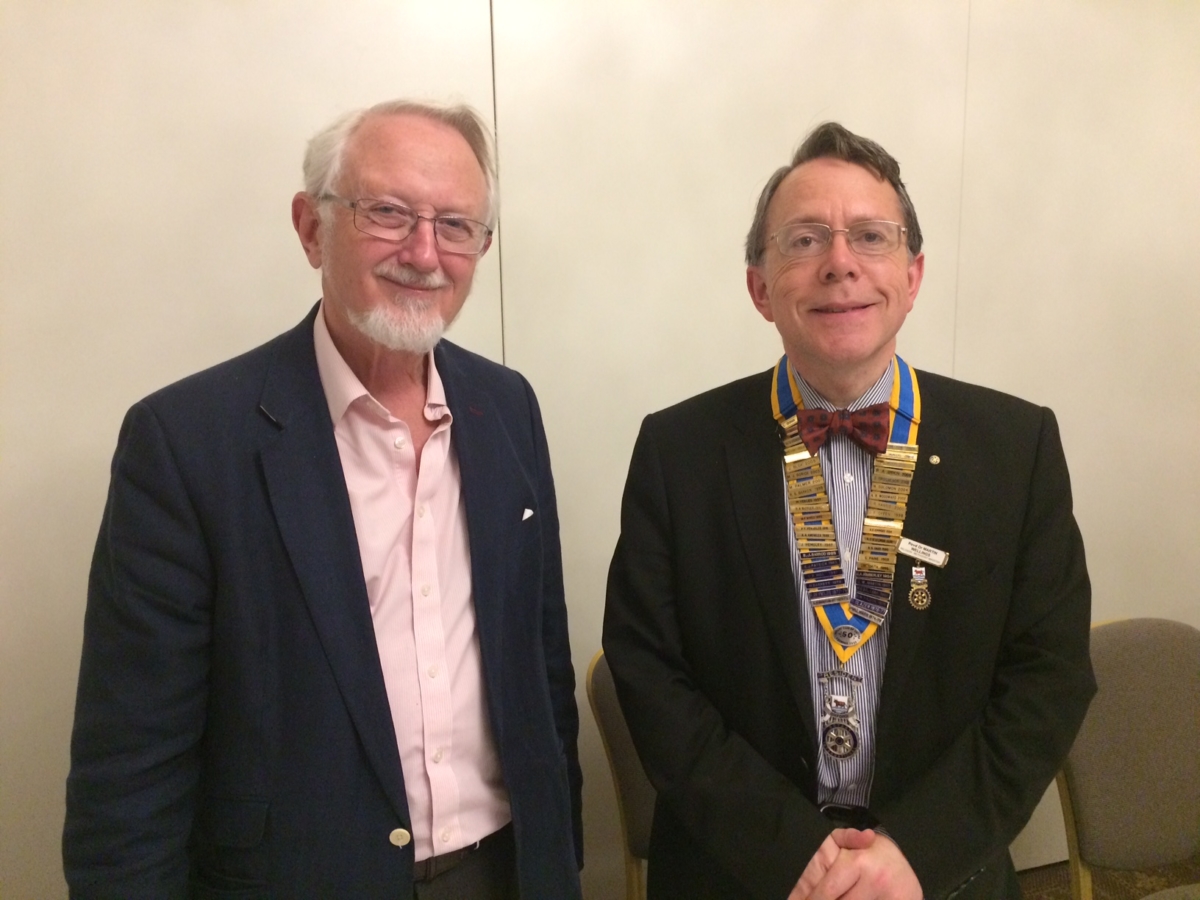Basil Eastwood CMG is a former diplomat and he came to speak to us on Islamism, a very timely topic following our guest visit to the Oxford Islamic Centre last week.
Basil started by clarifying the different types of Islamism that exist. He felt that the discussion was complicated by use of the terms moderate, extremist and fundamentalist. He prefers other terms, which he proceeded to define to us as follows:
• Political Islamists
• Violent Islamists
• International Jihadis
• Jihadi Wannabes
It is important in any discussion to understand that Islamism balances the needs of religion, state, and society. Sunni is the mainstream Islam. Most Muslims have sympathy for Islamism, but good Sunnis are taught to respect their leaders.
Political Islamists reject violence. They seek to apply Islamism within the state that they live in. The Muslim Brotherhood is an example of this type of Islamism. They have little truck with autocratic Islamic rulers and they aspire to democratic election.
Violent Islamists reject democracy and believe that it is acceptable to use violence to impose Islamism in the state where they are living.
International Jihadis aspire to use violence to defend affronts to Islam across the world. Their aims and appeal are international. Particular affronts include the state of Israel, the supposed western aim to control oil, and historic Islamist insults such as the crusades. They believe that if a fatwa has been imposed then killing is justified.
Jihadi Wannabes tend to be alienated young men. The causes of their alienation within the societies that they come from are specific to themselves and that society. In reality they know little about Islam and do not represent it. The so-called Islamic State is an example of this type of Islamism.
Both in law and society, it is considered legitimate to violently resist the occupation of one’s territory. In that context, Islamic organisations like Hammas take the view that their approach on defending Palestine is legitimate. Originally Hammas sought legitimacy through election and democracy, and were very successful in doing so. Perhaps unfortunately they were then prevented from proper political recognition by international society.
It is important to note that Islamism categories are fluid, and political Islamism is likely to become violent Islamism if a group is denied political recognition, or are suppressed. See for example the civil war in Algeria.
Basil then talked us through the question of whether and why we should talk to Islamist organisations. He sought to advocate that what happens in the Middle East will impact what happens both there and elsewhere in the world.
The regimes of the Middle East need to move towards a means of driving power from popular support, and this is going to mean emerging democratic systems that also need to incorporate religious matters. We need to be able to do business with those countries. We also need the emergence of these regimes to be attuned to the rest of the world – the West and Islamists need to be able to understand each other.
One of the tensions within Islamic ruling regimes is the different views on what form that regime should take. At the moment the only Islamic state recognised by the whole of Islam is the 7th century state of the prophet. Some believe that a state today should embrace the same principles (the ‘back to Islam’ approach). Others believe that an Islamist state should embrace Islamic principles that chime with where society is today (the ‘forward with Islam’ approach).
By talking to each other, we will gain a critical understanding. Engaging with Islam does not mean agreeing with it. Rather, we can (as with all diplomacy) agree on areas of agreement, and try to extend them. If nothing else, we will achieve improved understanding.
Even if we view the people we are talking to as terrorists, that should not stop us from talking to them. The reality of the Israel situation is that Israel must involve Hammas if it seriously wants peace with Palestine. As Basil wisely pointed out: we cannot achieve peace if we talk only to our friends.
Barack Obama spoke at Cairo University, Egypt in June 2009. It was an excellent speech even by his own standards, in which Obama advocated a human-rights based approach to democratic government, the importance of allowing the people to have a say in how they are governed, and to be respected regardless of their political beliefs. See text of that speech here:
http://www.nytimes.com/2009/06/04/us/politics/04obama.text.html
Basil did, however, note that despite that historic speech and the Arab Spring that followed it (and which toppled regimes throughout the Middle East), many of those opportunities have since been lost. Rather than embracing Political Islamism, many of those regimes have since stifled opposition which has in turn led to exacerbated tensions in the Middle East and particularly in Egypt.
Basil summed up his talk by cautioning us to be careful not to put all Islamists into one category. He believes we certainly should not be embarrassed to talk to Islamists. Indeed, we should talk to all who are prepared to talk to us, for the reasons outlined earlier.

